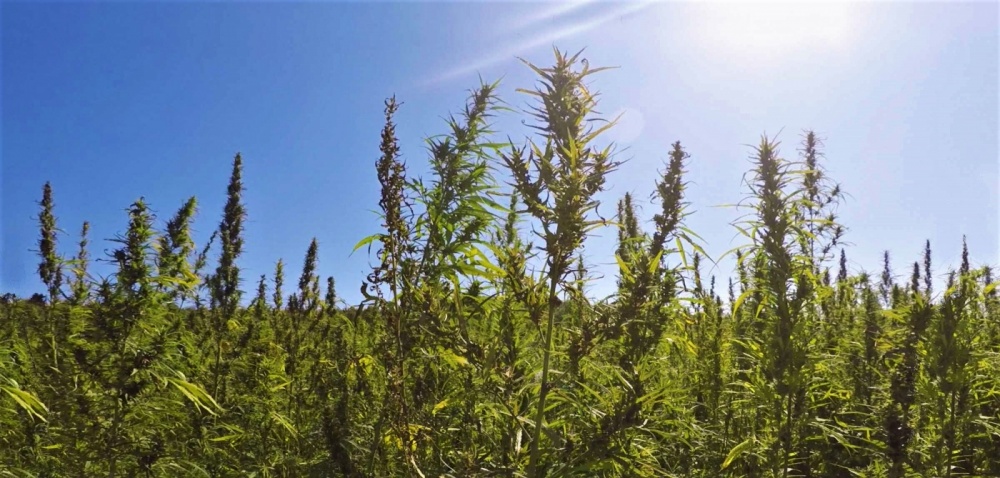Anything But CBD: The Bigger Opportunity in Hemp

Let this sink in for a moment. Licensed hemp acreage forecasts to increase from 525,000 acres in 2019 to 9.0 million acres by 2030– an extremely conservative estimate, according to leading research firm Whitney Economics. Currently, 80% of the entire acreage allocation is for one part of the plant – the aerial leaves and buds used to extract phytocannabinoids for CBD products. Left on the table are literally tons of hemp stock and seeds that are still grossly undervalued. Shocking considering that fiber from hemp has thousands of applications alone. But perhaps the more significant opportunity for hemp exists deeper within its core and should be a focus for the food and beverage industry.
Inside every hemp seed is a nutritional powerhouse that nets two intriguing functional ingredients: a potent plant-based protein and a nutritionally rich omega-3 oil. Manufacturers may not be aware that although they come from the same plant, hemp seeds are actually exempt from much of the same regulatory barriers that pertain to cannabinoid use. Many hemp seed ingredients are GRAS for safe usage in intended food and beverage applications in all 50 states.
But hemp seed tastes awful, right?
I know, I know... formulating with hemp seed is ordinarily a poor experience. The sensory characteristics of dark green color and pungent 'hempy' flavor can be off putting and difficult to mask, to say the least. But fortunately, ingredient technologies have come a long way, and we can put those experiences to bed without the need for expensive nanoencapsulation or flavor masking agents.
One great example of innovation in hemp grains is our partnership with Victory Hemp Foods. Through their years in hemp seed research, Victory found a simple solution to remove the outer shell. Appropriately called the 'Hemp Heart,' this lesser-known dehulled center of the hemp seed makes a world of difference in the product's sensory attributes. The hemp heart is the stored nutrient naturally reserved for sprouting new hemp plants. By removing the shell, we can access the nutritional excellence from hemp seed, and present it as a cleaner, white ingredient with a neutral flavor. For the protein, its delightful silky smooth texture finishes masterfully in many beverages.
The best tasting plant-protein comes from the heart.
Plant-based protein is a category that is evolving fast. Brands are trying to get protein in everything! Crackers, chips, cookies, gummies, juices, k-cups, pouches, cold brew coffees, energy drinks, meal replacements, and bars top a long list of products with protein-related claims. Protein continues to be one of the fastest-growing ingredients among global food and beverage launches at +26% CAGR 2014-2018 (Source: Innova Market Insights 2019).
The most prominent sources of proteins are whey and casein protein. However, they are both derived from milk, and many consumers experience digestibility issues such as bloating, gas, or stomach cramps. Whey protein also flows contrary to many 'hot buttons' like dairy-free, vegan, Non-GMO, etc.
On the other hand, plant proteins are an attractive alternative as they are void of many common allergens and tend to meet the requirements of popular diets such as vegan, paleo, and keto. Plant protein can also have additional phytonutrients like amino acids, fiber, antioxidants, vitamins, and minerals to help brain and body function.
The most notable challenge of using plant-based proteins in formulations is their impact on the final product's flavor, texture, and appearance. While we already addressed this with hemp seed, it is interesting to see how this plays out with the ever-popular pea protein. I know we are all enamored by pea protein, but it too brings off-notes of bitterness and can cause grittiness to a formulation. Perhaps this is why the most successful pea protein ingredients are isolates, which mitigate most of the sensory issues. Consequently, isolates nullify much of their attractive, functional attributes in being "plant-based" as well. Therein lies another excellent opportunity for hemp hearts.
Hemp hearts have a lot of nutritional promise. They contain more protein wt/wt than almonds, chia, or flax seeds and have all nine essential amino acids. Unique to hemp seeds is the fatty acid profile, laden with omega-3s. Our newly launched V-70™ came out of an exciting collaboration with Victory Hemp Foods. Beverage manufacturers appreciate the 70% protein complete range of amino acids and omega-3s, but it is the neutral flavor and near white color that provides you with a significant formulation advantage over other plant proteins. Additionally, V-70™ emulsifies with exceptional performance in beverages overcoming considerable challenges from many plant proteins.
Sustainability matters
Don't sleep on sustainability as an influential factor for purchasing decisions. Consumers are willing to spend up to 31% more for products that align with their values relating to clean, sustainably-sourced ingredients (Source: Mintel Report for AFS Innovation Retreat). From an agricultural perspective, hemp has a tremendous upside. It can grow 'like a weed' in diverse climates and is ready to harvest in as little as 90 days (CHTA 2020). The sustainability story behind our new V-70™ and V-ONE™ hemp heart ingredients is a work in progress. However, through our partner Victory Hemp Foods, the end goal is to partner exclusively with sustainable and regenerative farms seeking to diversify their crop mixes by adding hemp to their traditional row crop rotations. We contract with U.S. hemp farmers, utilizing hemp that is grown & processed in the U.S.
Incorporation of hemp into crop rotation cycles has many benefits, including carbon sequestration separating approximately 1.63 tons of CO2 per ton of hemp. Hemp can also aid soil by adding nutrients back into the ground (CHTA 2, 2020). In restoring organic matter hemp roots provide underground biomass that increases soil water-holding capacity and the farm's ability to withstand drought. By including hemp in a diverse crop rotation, it allows for a more balanced level of soil nutrients.
We need to look at hemp as more than CBD now more than ever. At our current rate of soil degradation, it will take less than 50 years to deplete the suitable soil to grow the crops needed to feed ourselves (source: Regeneration International). Therefore, promoting soil conditioning crops like hemp is imperative. It may be true that currently, the CBD market is driving the popularity of hemp. However, hemp seeds for protein and oil have the opportunity to deliver cost-effective nutrition to everyday food products while utilizing more of the whole hemp plant bringing higher value to this crop.
 By
By 

